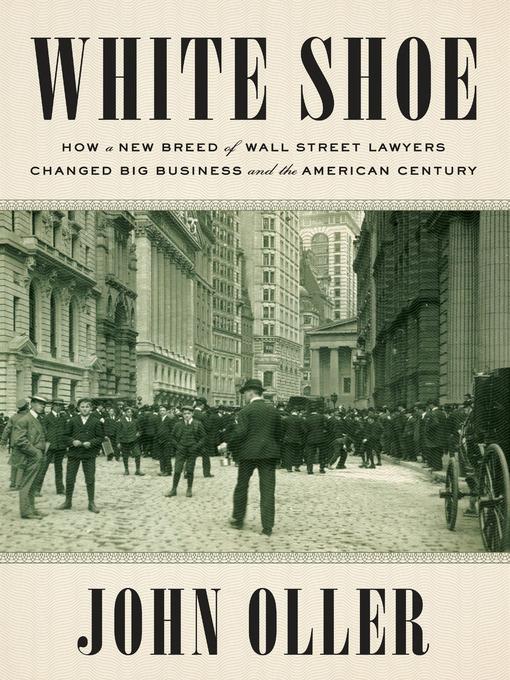
White Shoe
How a New Breed of Wall Street Lawyers Changed Big Business and the American Century
کتاب های مرتبط
- اطلاعات
- نقد و بررسی
- دیدگاه کاربران
نقد و بررسی

January 15, 2019
A lucid account of the rise of the modern law firm and the concomitant rise of the modern corporation.Massive law firms abound in the world's financial capitals, organized according to principles set forth by a young lawyer named Paul Cravath in the last years of the Gilded Age. Lawyers today know his last name in connection with organizational methods that are still in place--what Oller (The Swamp Fox: How Francis Marion Saved the American Revolution, 2016, etc.), who spent three decades as a Wall Street lawyer, calls "the creation of a new organizational society." However, as the author shows, Cravath had more in mind than just regularizing office procedures. He and other "white shoe" lawyers of his time, such as William Cromwell and Elihu Root, carved legal paths that led to the current notion that a corporation has legal personhood, organizing a body of laws that helped corporations avoid regulations while enjoying as much economic freedom and wealth as possible. As Oller notes, these lawyers tended to be conservative, even reactionary; a notable example was John Foster Dulles, an entrenched foe of the New Deal, "which Dulles viewed as a threat to free enterprise." At the same time, however, the white shoe lawyers helped develop legal limits that kept the corporations from pushing too hard, with Cravath developing methods for raising capital that curbed the practice of "watering stocks" and proposing "greater restrictions on the issue of new securities than in the past." The corporations were not always grateful, and though the rise of the modern company tracks closely with the parallel rise of the big modern law firm, not all the Wall Street players followed suit in Cravath's devotion to institution-building. Most, however, opted for the big-firm, multipartner, all-for-one model, and even if Cravath would later call big business "the most serious menace of our age in its social consequences upon American life," his model prevails.Students of economic and legal history will find Oller's book insightful and revealing.
COPYRIGHT(2019) Kirkus Reviews, ALL RIGHTS RESERVED.

























دیدگاه کاربران